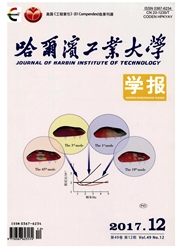

 中文摘要:
中文摘要:
为考察微生物特征与膜污染阶段性发展的关系,在常温下运行缺氧/好氧膜生物反应器(A/O-MBR),采用末端限制性片段长度多态性分析(T-RFLP)技术、原子力显微镜(AFM)等技术,获得MBR系统内微生物的种类、数量分布等信息,并采用3阶段模式对一个完整的膜污染周期内膜污染的发展过程进行研究.结果表明:膜丝表面及膜孔内壁的附着物质是膜通量降低的主要原因;好氧段混合液内、凝胶层、膜丝表面的微生物群落结构不相同,并随膜污染的发展而不断演替;随膜压升高,Cake层微生物优势种群演替过程为根瘤菌属→伯克氏菌属→未培养硝化螺菌属→发硫菌属→动胶菌属→β-变形菌纲,其中动胶菌属与膜表面粘性物质积累有较大关系.
 英文摘要:
英文摘要:
To investigate the relationship between microbial properties and membrane fouling, an anoxic- aerobic membrane bioreactor (A/O- MBR) was established and run at room temperature. The techniques of Terminal Restriction Fragment Length Polymorphism (T -RFLP) and Atomic Force Microscope (AFM) were used for analyzing the role of microorganisms for membrane fouling in different stages, and the three-stage model was applied to study the development proce'ss of membrane fouling in a whole cycle. The results showed that the process of MBR membrane fouling could be~ divided into three stages. The solid or dissolved materials attached to the membrane wire surface and the membrane pore were the main reason for the lower flux. The microbial community structures were different and changed with the deepening membrane fouling in the Aerobic mixture, the Cake layer and the membrane wire surface. With the increasing of the membrane pressure, the succession of dominant populaiions of the microbial in the Cake layer is : Rhizobiales Bacterium Burkholderia sp. ~ Uncultured Nitrospira sp.→ Thiothrix Eikelboomii→ ZoogloeaRamigera Betaproteobacterium, and ZoogloeaRamigera is greatly related to the viscous material on the surface of membrane.
 同期刊论文项目
同期刊论文项目
 同项目期刊论文
同项目期刊论文
 Reactivation characteristics of stored aerobic granular sludge using different operational strategie
Reactivation characteristics of stored aerobic granular sludge using different operational strategie Sewage treatment by an UAFB-EGSB biosystem with energy recovery and autotrophic nitrogen removal und
Sewage treatment by an UAFB-EGSB biosystem with energy recovery and autotrophic nitrogen removal und Tracing biofouling to the structure of the microbial community and its metabolic products: A study o
Tracing biofouling to the structure of the microbial community and its metabolic products: A study o Simultaneous energy recovery and autotrophic nitrogen removal from sewage at moderately low temperat
Simultaneous energy recovery and autotrophic nitrogen removal from sewage at moderately low temperat 期刊信息
期刊信息
